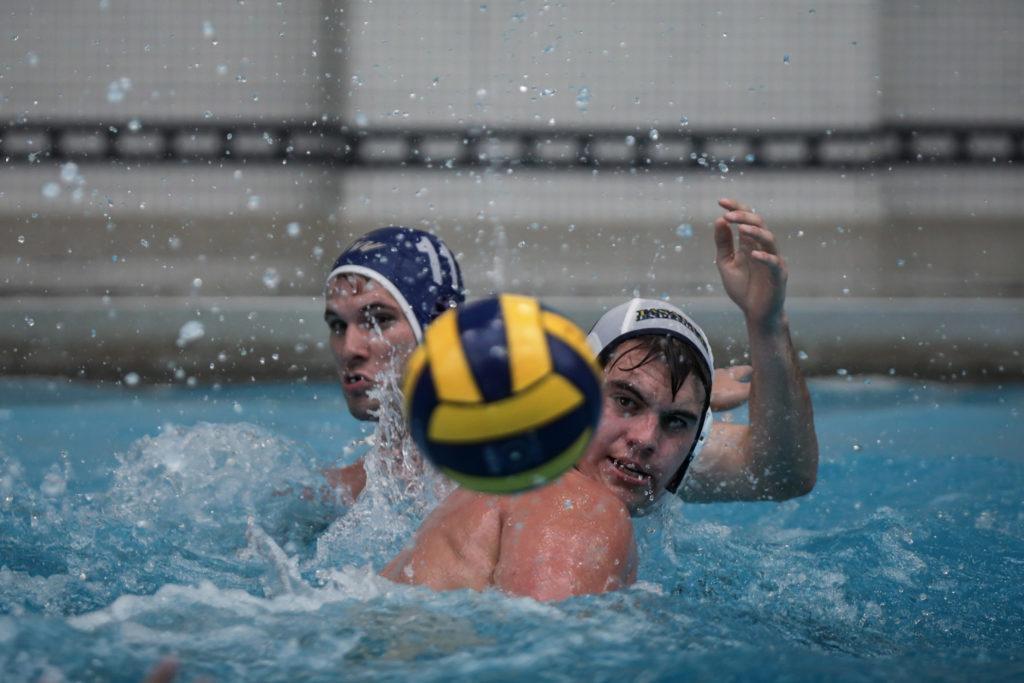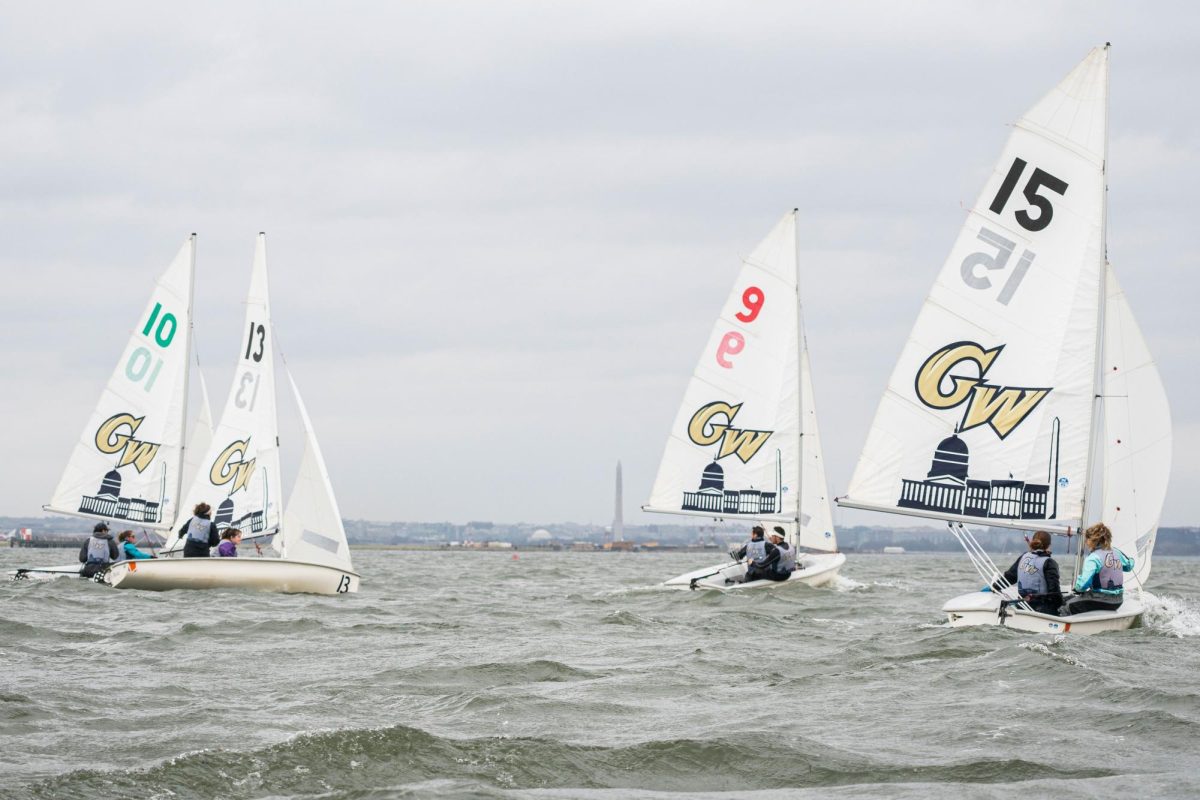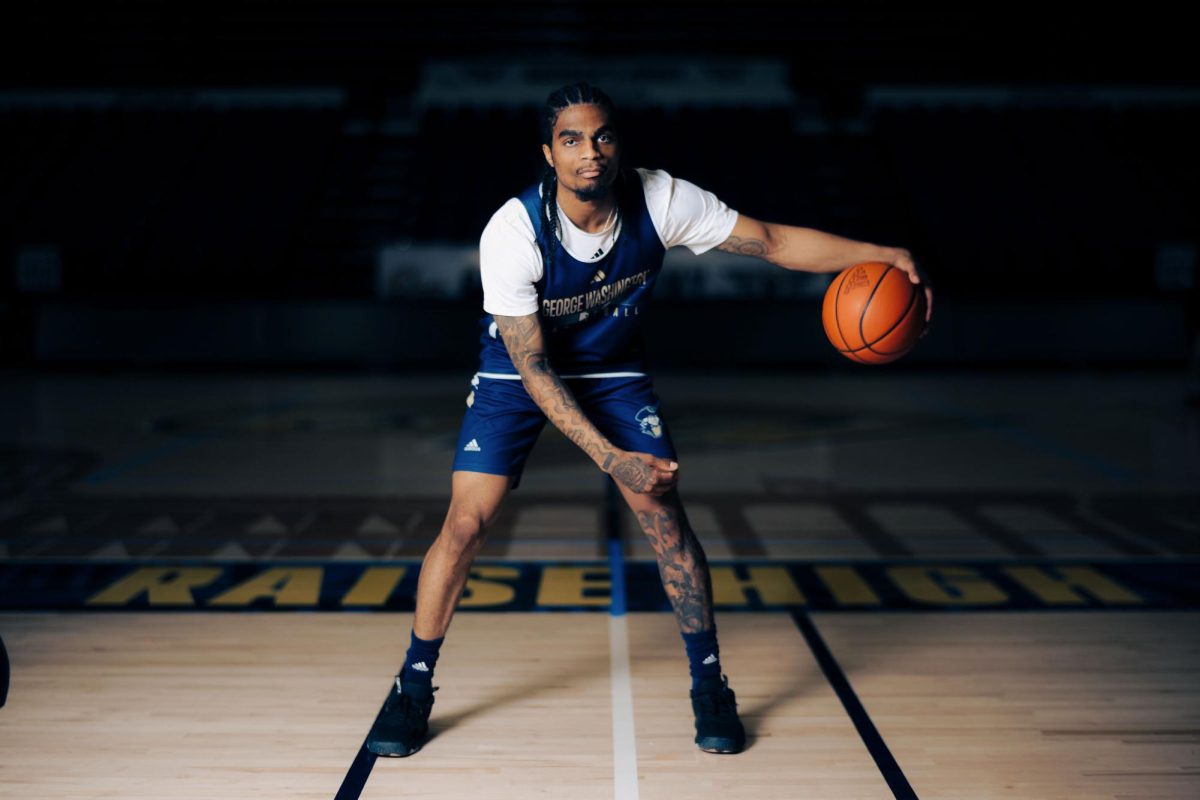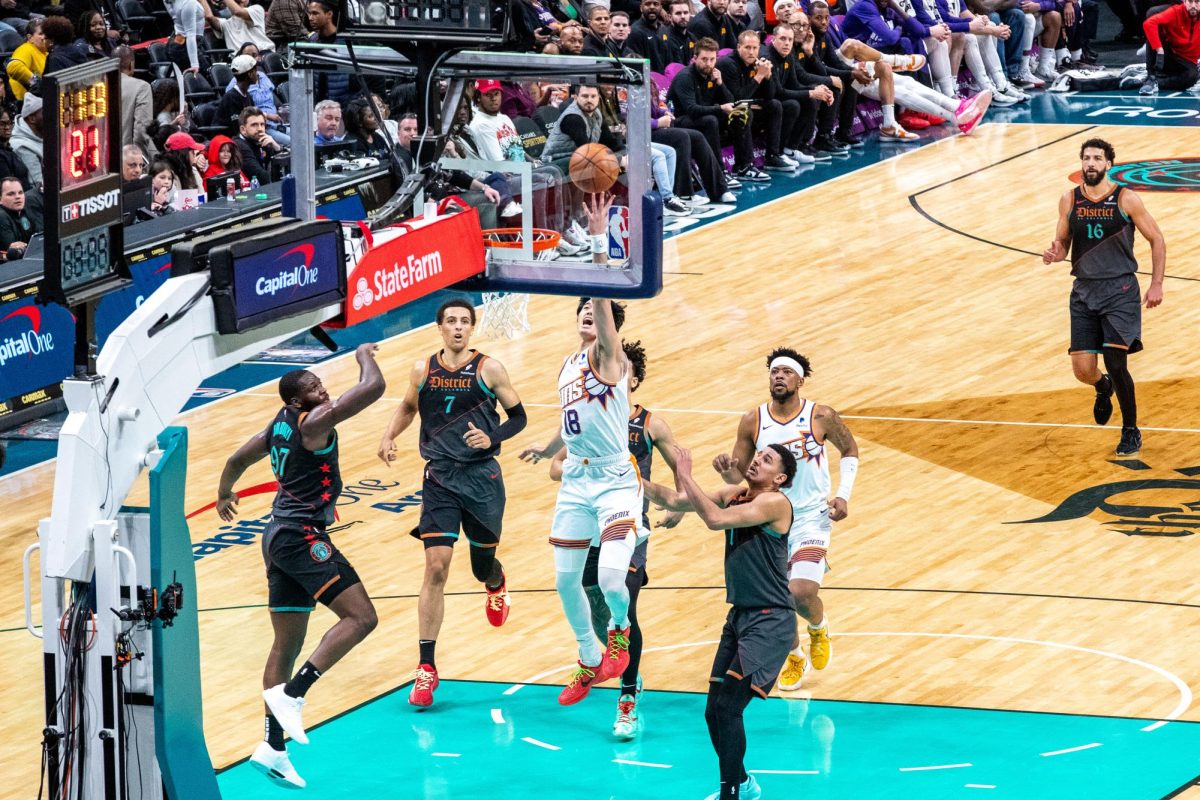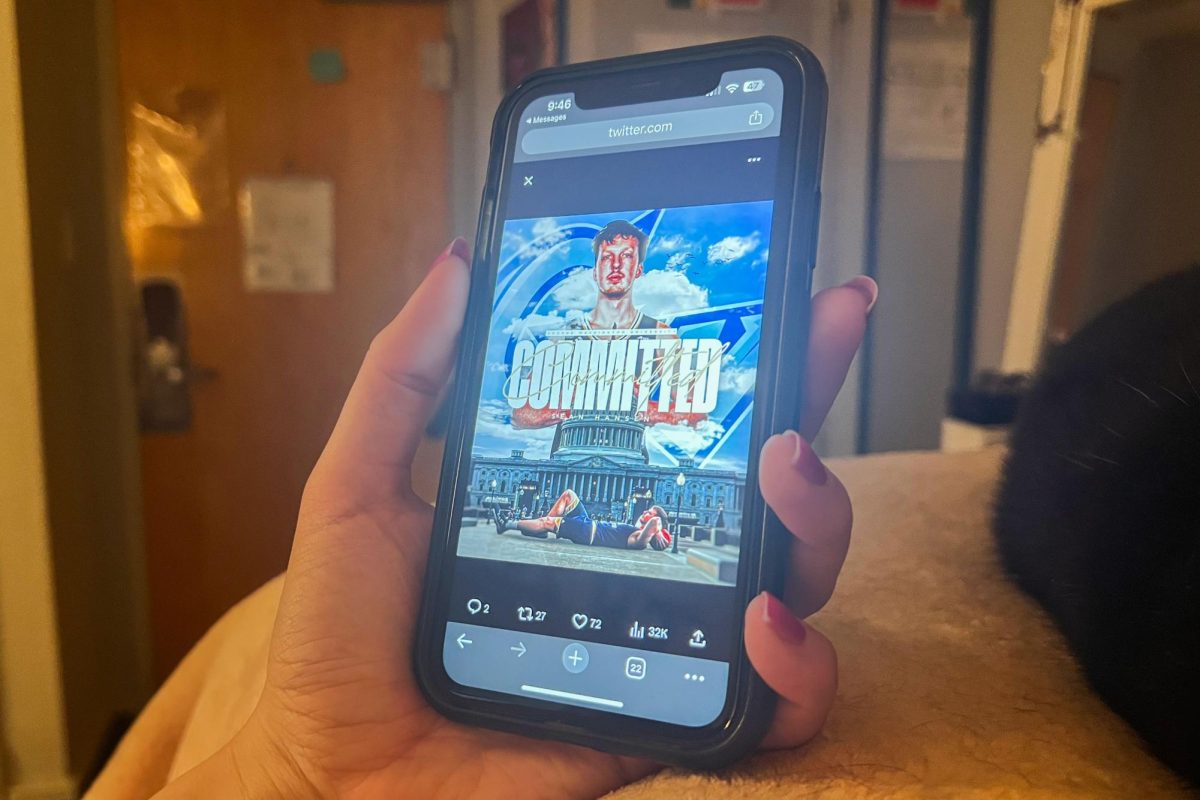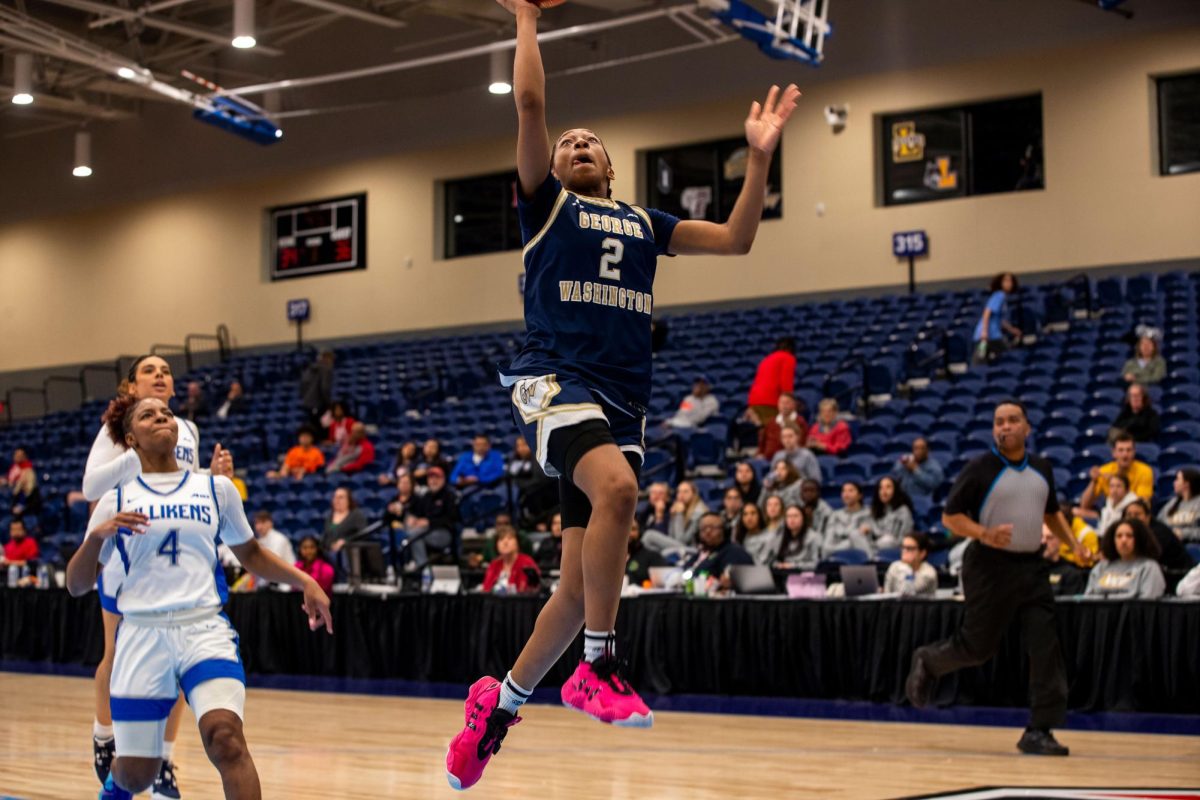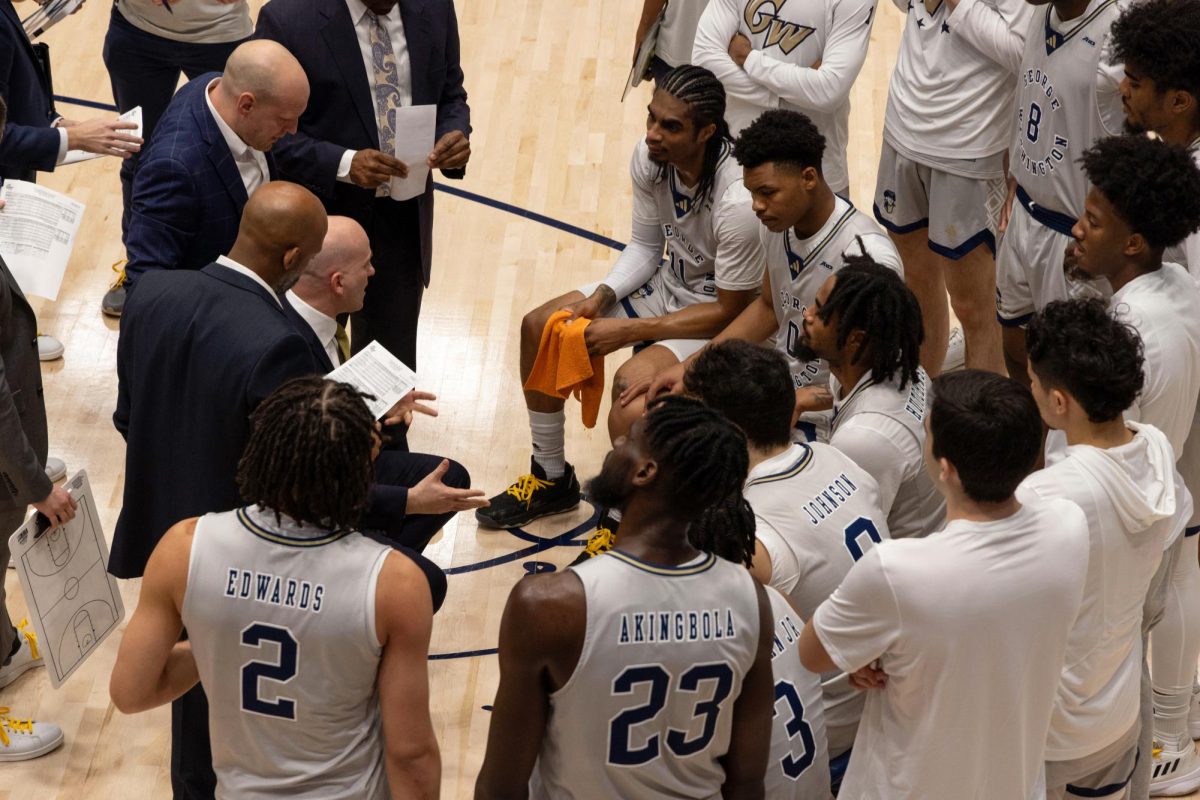With fall sports delayed until the spring semester, The Hatchet is checking in with head coaches from affected programs to gain insight on how each team is handling the pause on competition. Check back each week for new installments.
Volleyball and men’s water polo are eyeing skill-based training to ease athletes into competition in the spring.
The Atlantic 10 and Mid-Atlantic Water Polo Conference postponed fall sports until the spring semester amid the ongoing pandemic. Head volleyball coach Sarah Bernson and head men’s water polo coach Barry King said the fall will resemble its spring training with more individualized and skill-based workouts, but the teams will need to navigate challenges brought on by the pandemic, like finding a safe place to train.
Here’s how the two teams are using the fall to prepare for spring play:
Volleyball
[gwh_image id=”1066106″ credit=”File Photo Olivia Anderson | Photo Editor” align=”none” size=”embedded-img”]Junior outside hitter Skyler Iott faces off against two Dayton players during Saturday night’s game. The Flyers beat the Colonials in four sets.[/gwh_image]
Colonials who have returned to D.C. have been able to get back on the court, Bernson said, but the pace of play and safety protocols have changed.
She said the team is taking its return to play slowly in accordance with the NCAA’s resocialization plan, which stipulates three phases of varying safety protocols regarding facility use, practice sizes and COVID-19 testing.
“We’re taking it slow and that’s OK,” Bernson said. “We’d usually be testing their cardio and seeing how they are when they come back, but we’re taking it really slow in regards to pace of touching the ball.”
Groups have been working out in groups of five or 10, frequently cleaning balls and reviewing mechanics. Bernson said she joked with spring sports coaches, whose seasons were cut short by the health crisis, that she was “jealous” they were able to practice individual skills before coming together as a team.
“We get jealous a little bit of the spring sports that get to train individually and then they become a team in the spring, and they get the foundation before teamwork,” she said. “When we usually start playing, it’s all team all the time, and now we get to try it for ourselves.”
She added that student-athletes not in the D.C.-area are also taking on individualized workouts.
Bernson said she thought the decision to postpone volleyball was the right decision, and she prepared her team over the summer for each possible outcome – virtually or in person – regarding fall sports.
“In those discussions, we’ve said in all cases that we will be together as a team,” Bernson said. “It will either be virtually, in person, in all cases the team environment would carry on – it just might all look different.”
Last season, the Colonials traveled to three consecutive tournaments in Florida, North Carolina and Texas, respectively, within the first month of competition. She said losing team trips for away games is a downside to not playing in the fall, partially because they helped the squad bond on the road.
“We’re in situations that I think highlight people’s personalities and how they interact,” Bernson said. “And often when we talk to former collegiate athletes, they’ll talk about their memories on a team trip because that sometimes is a big chunk of their fondness of playing on a sports team – those moments.”
Men’s water polo
With 13 of its 16-member team in the District, King said the group is focusing on fitness and individual, skill-based training. He added that the team is not currently using on-campus facilities, but he hopes the team will be up to “full speed” and playing by November.
“If we can get up to speed by November and have some semblance of fitness and stuff like that, then it will be great,” King said. “If we have some challenges in terms of getting the training together, it will be this possibility that January is the first time that some of these guys have touched the ball in over a year.”
King added that the three players not in D.C. are at home training with their club teams. Athletic department spokesperson Brian Sereno said in an email late July that student-athletes would not be required to return to campus “under any circumstances” when the University announced an online fall semester.
“They have a more solidified situation at home with their established club team,” King said. “It made sense for the three guys who are home to be home and have access to that kind of training.”
Men’s water polo welcomed five freshmen to its roster this season. King said postponing the season until the spring will help the new additions become acclimated to the program before the squad sets foot in the water for competition.
“In a typical season, the first years showed up and 17 days later we’re playing, we’re competing,” King said. “The whole season is a process of incorporating the first years in.”
Players were encouraged to change their course schedule this fall to accommodate some extra studying time. King said he wants the team to focus on succeeding in the classroom, which included taking a heavier load in the fall to help manage time when competition rolls around in the spring.
“We needed to shift some things around so that people were taking possibly heavier loads and more important things in the fall since we weren’t going to have the added weight of competitions,” he added.
Without practices, study halls and visits to athletic trainers in the Smith Center, King said he misses out on “informal” chances to check in with student-athletes. But he added that he is speaking to his team now more than ever to keep in contact online.
“I actually probably talked to them more as a group or individuals now than when they’re normally on campus,” King said. “We have more ready access to each other. It requires us to schedule things a little bit more, be a little bit more attentive to our calendars. It’s really just kind of about having regular contact and understanding what everybody’s challenges are.”
Belle Long contributed reporting.


